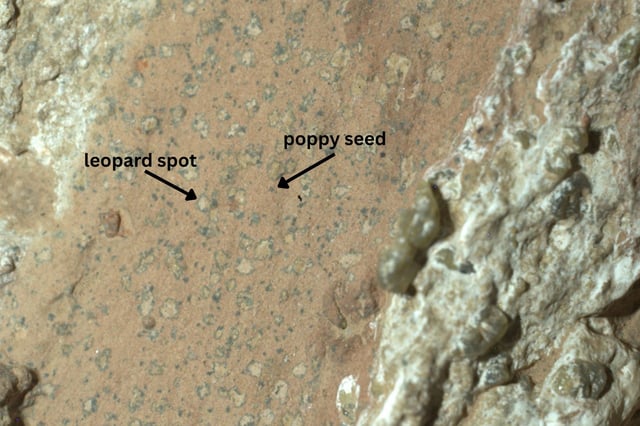Overview
- NASA and a peer-reviewed Nature paper reported that a Perseverance rock core contains a potential biosignature, presented with explicit caution during a Sept. 10 briefing.
- Rover instruments detected organic signals and mapped reaction-front textures hosting vivianite and greigite, minerals that on Earth often form through microbe-driven processes.
- The core was drilled in July 2024 from Cheyava Falls within the Bright Angel formation at the edge of Neretva Vallis in Jezero Crater’s ancient lake environment.
- Scientists emphasize that non-biological chemistry could produce the same features and that rover data alone cannot distinguish between abiotic and biological origins.
- The sample remains sealed on Mars as NASA evaluates options for a Mars Sample Return effort, which faces cost and schedule uncertainty despite ongoing planning.



